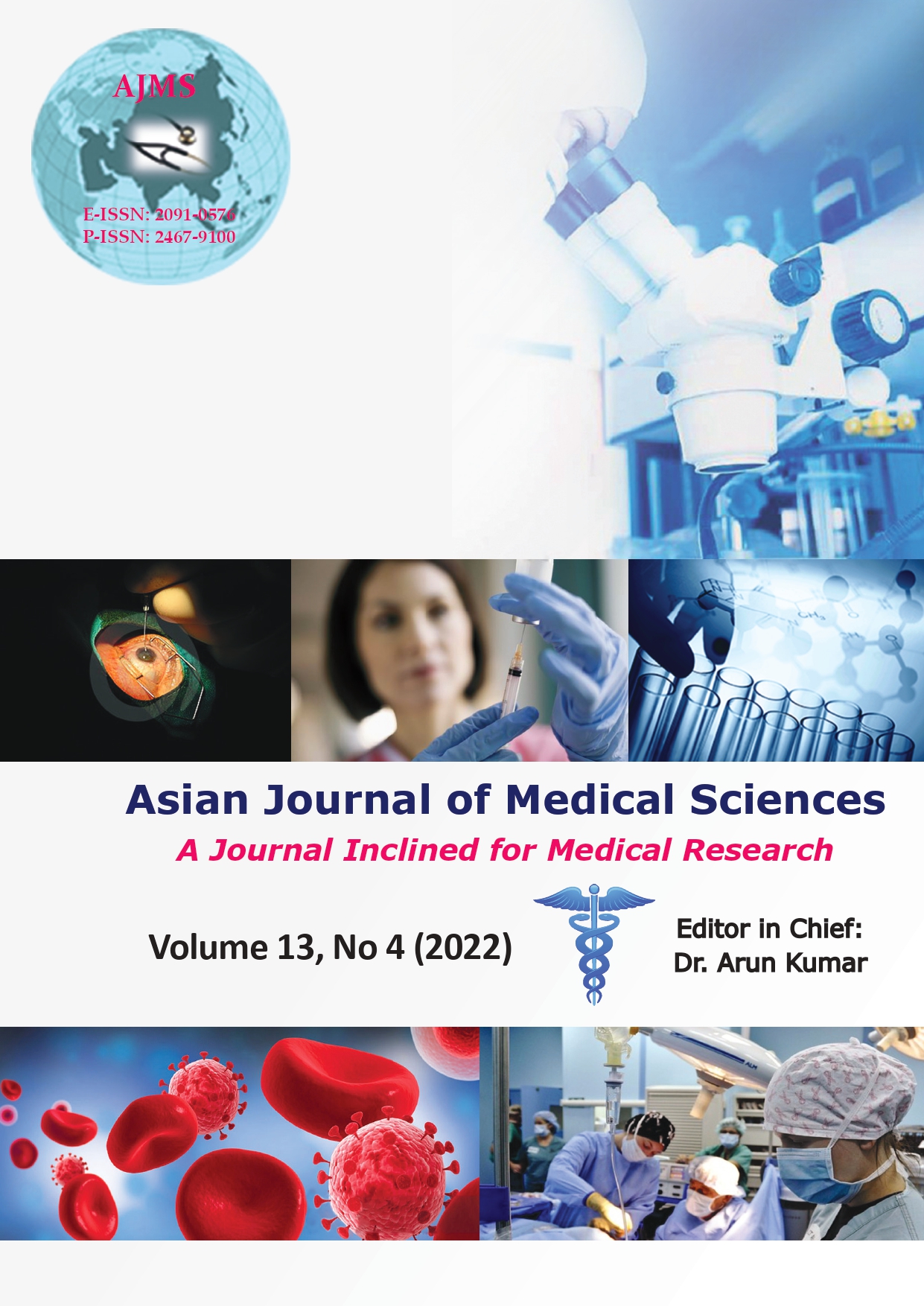Parasitic infections encountered by a cytopathologist: An institutional experience
Keywords:
Fine needle aspiration cytology, Parasitic infections, Vaginal smearsAbstract
Background: Parasitic infections are one of the leading causes of morbidity and mortality worldwide. Cytological examination can be of great help in providing economical, accurate, and fast diagnosis.
Aims and Objectives: The aim of the study was to analyze the cytomorphological features of various parasites on fine needle aspirates and vaginal smears.
Materials and Methods: This study was a retrospective study of 5.5 years during the time period from July 2015 to December 2020. The study included cases which were already diagnosed as having or suspicious of various parasitic infections on cytological examination.
Results: There were total of 37 specimens comprising of 28 fine needle aspiration cytology (FNAC) smears and nine vaginal smears. The parasites on FNAC included 17 cases of cysticercus, eight cases of filariasis, two cases of hydatid disease, and one case of leishmaniasis. All the nine vaginal smears were interpreted as trichomonas vaginitis.
Conclusion: Cytomorphological examination helps in early definitive diagnosis and exclusion of various parasitic infections. Diagnosis is important as most of these parasites are treatable and have several systemic ramifications.
Downloads
Downloads
Published
How to Cite
Issue
Section
License
Copyright (c) 2022 Asian Journal of Medical Sciences

This work is licensed under a Creative Commons Attribution-NonCommercial 4.0 International License.
Authors who publish with this journal agree to the following terms:
- The journal holds copyright and publishes the work under a Creative Commons CC-BY-NC license that permits use, distribution and reprduction in any medium, provided the original work is properly cited and is not used for commercial purposes. The journal should be recognised as the original publisher of this work.
- Authors are able to enter into separate, additional contractual arrangements for the non-exclusive distribution of the journal's published version of the work (e.g., post it to an institutional repository or publish it in a book), with an acknowledgement of its initial publication in this journal.
- Authors are permitted and encouraged to post their work online (e.g., in institutional repositories or on their website) prior to and during the submission process, as it can lead to productive exchanges, as well as earlier and greater citation of published work (See The Effect of Open Access).




